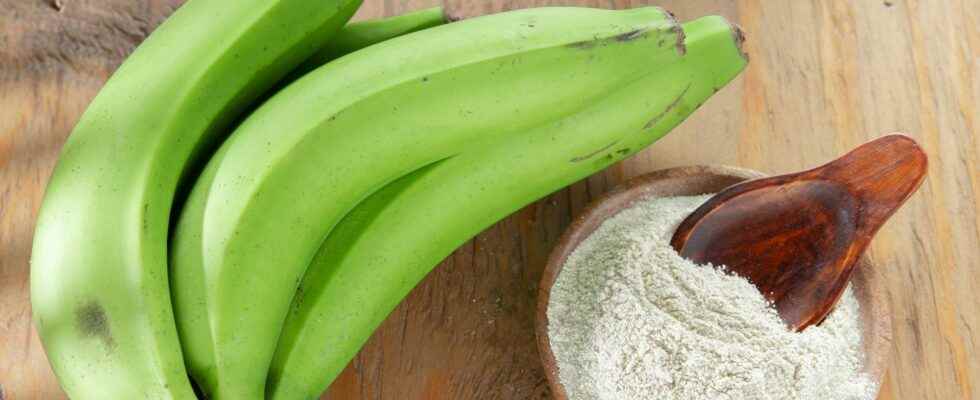This is information that seems unlikely. However, researchers have shown that resistant starches, contained among others in bananas, prevent certain cancers.
You will also be interested
[EN VIDÉO] Interview: Cannabis, an anti-carcinogenic substance? In France, the question of cannabis remains sensitive since, according to estimates, more than 4 million people aged 12 to 75 have already used it. This narcotic is the subject of numerous studies with contradictory conclusions. Futura went to meet Paul Hofman, director of the Nice pathology laboratory and pioneer researcher in the detection of lung cancer, to find out more about this substance.
The bananas have the power to prevent cancer? The results of a recent clinical trial, published in Cancer Research Prevention, might suggest. In fact, scientists have studied whether a daily intake of 30 grams of resistant starch — a type of starch that is not digested bysmall intestine — present in green bananas, potatoes or even the legumes can prevent the appearance of certain cancer.
This research was carried out on very specific patients, suffering from syndrome of Lynch. This is a problem hereditary original genetic which disrupts the repair mechanisms of theDNA. As a result, people with Lynch syndrome have a higher risk of developing cancer at a young age than average. The attacks are diverse, but colorectal cancers are the most frequent, followed by those of the endometrium andstomach. Aspirin-based treatment reduces their risk of developing, but for cancers that affect other parts of the body, scientists have not found a way to prevention effective…until they got into resistant starches.
Bananas, the anti-cancer gesture for people with Lynch syndrome
The results of this clinical trial are only of interest in a very limited context. By no means do these results suggest that resistant starches prevent all cancers in the general population. On the other hand, they provide interesting data on a possible means of preventing non-colorectal cancers in people with Lynch syndrome.
The 918 participants in this trial were separated into two groups: a group that consumed 30 g per day of resistant starch in powder form and a group that consumed a placebo. The follow-up was done over the long term. If the patients in the “resistant starch” group took this supplement for four years, their state of health and the appearance of cancers were examined for almost ten years for the majority and up to twenty years for some of them. .
The results show that resistant starches have no effect on theimpact of the colorectal cancers in patients with Lynch syndrome, but on other cancers. The effect is particularly noticeable on cancers of the upper gastrointestinal tract. In the “resistant starch” group, 27 people developed non-colorectal cancer compared with 48 in the placebo group; more than two years after the start of the clinical trial.
The scientists conclude that resistant starches have a protective effect against non-colorectal cancers in people with Lynch syndrome, although they still note certain limits to their result. Indeed, their first hypothesis was that resistant starches actually have an effect on the prevention of colorectal cancers, which they could not show here. The prevalence of Lynch syndrome in the general population is not known and the individual risk of each disease also depends on other factors such as age, gender or lifestyle.
A desire to escape for the summer?
To celebrate the holidays as it should be, discover the Mag Futura at the preferential price of €15 instead of €19, i.e. a reduction of 20% !
On the program of this issue: a dive into the heart of 4 scientific themes that will mark 2022, from the Earth to the Moon:
- What mysteries does the Moon still hide from us?
- Will we soon be able to cure everything thanks to genes?
- How to feed the world without destroying it?
- Can artificial intelligence become truly intelligent?
What is Mag Futura?
- Our first paper journal of more than 200 pages to make science accessible to as many people as possible
- 4 major scientific questions for 2022, from the Earth to the Moon
- Home delivery*
*Delivery is made in France (excluding metropolitan France), Switzerland, Belgium.
Interested in what you just read?
